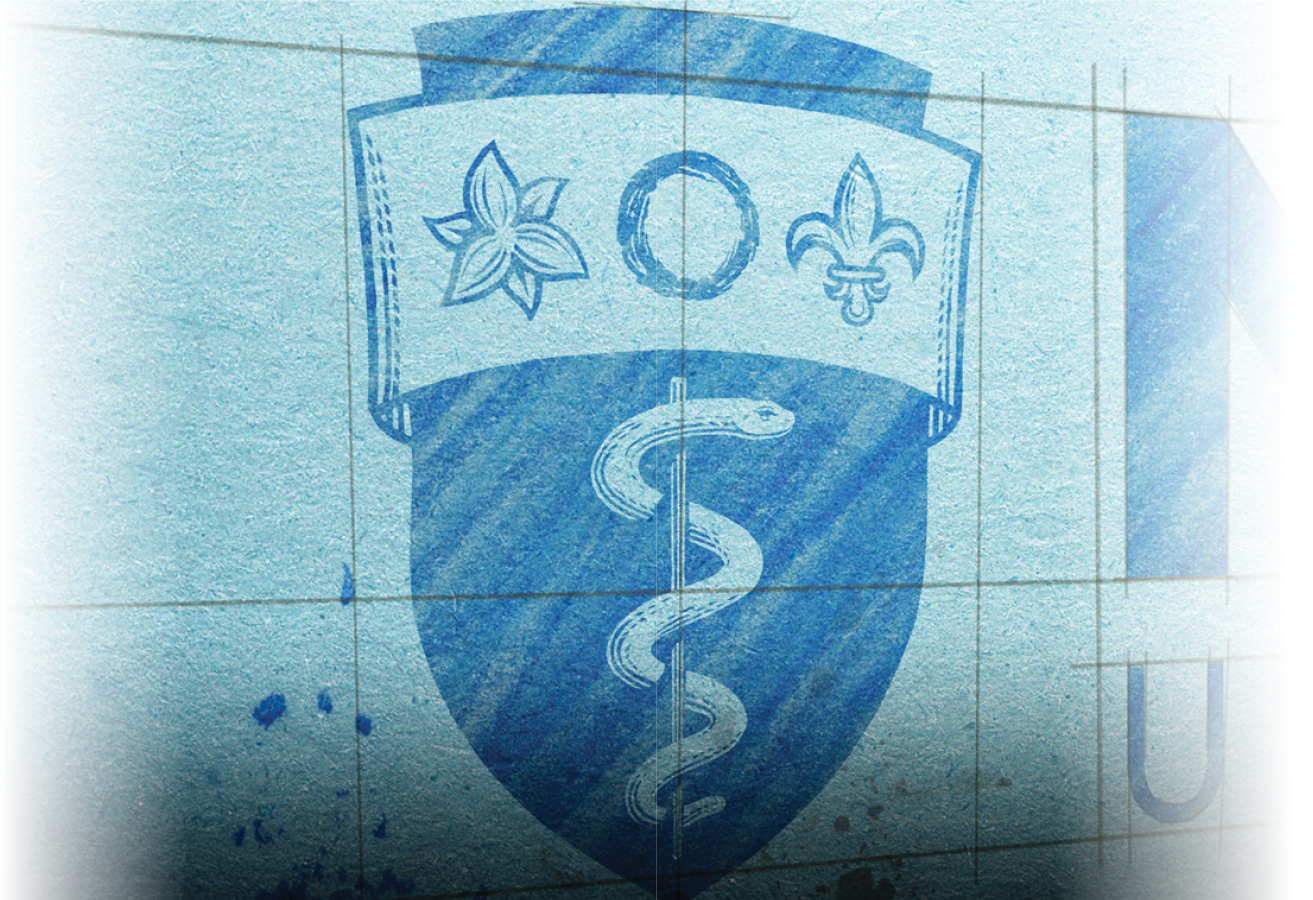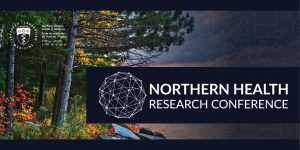Doctors needed.
Posted on October 5, 2021
This week is the start of our public consultations about the future of the Northern Ontario School of Medicine (NOSM). We are kicking off a series of town halls in Thunder Bay this evening and there is still time to register. I also look forward to spending time in Sioux Lookout, Kenora, Fort Frances, Hearst, Sudbury, North Bay, Timmins, Sault Ste. Marie and Rosseau in the coming weeks. Dates and times as well as a link to RSVP are on the School’s website. As space is limited to attend in person, please RSVP or plan to participate virtually. It is not possible at this time to visit every community so I encourage all Northern Ontarians to participate in at least one town hall. I hope that in the next year, we will visit as many communities across Northern Ontario as possible.
We know that NOSM has been very successful in improving access to quality health care for Northern Ontarians, but the reality is we have so much more work to do. As of today, we estimate that over 300 physicians are needed in the North and that does not factor retirements that may take place in the next five years. We need to transform health human resources (HHR) to align with our needs in Northern Ontario and address all types of communities including: Francophone, Indigenous, rural, and urban. NOSM’s strategic plan, The NOSM Challenge 2025, identified this as the key priority with a focus on specialist and subspecialist physician training.
Four outcomes are being measured as NOSM moves forward with achieving this priority:
- An integrated, customised and evidence-based approach to health human resources (HHR) for Northern Ontario;
- Integration of rural, remote and community needs into our education programs;
- Enhanced connectivity and communications for all NOSM communities; and,
- A system to support clinical faculty in their academic work.
The aspiration is that NOSM’s transformative approach to the planning and delivery of the health-care workforce supply will eliminates the gaps in Northern Ontario health human resources.
Initial information on the measurable outcomes of this work can be found on the strategic plan website.
The other strategic priorities of Advance Social Accountability, Innovate Health Professions Education, and Strengthen Research Capacity in Northern Ontario are all linked to this first strategic direction.
You may be asking, what is NOSM’s role in the development of physician resources for Northern Ontario? NOSM’s role is broadly in three domains:
- Education and training of future clinicians:
- Ensure teaching and training capacity by working with communities and clinicians to create equitable opportunities for all communities and faculty to participate in training NOSM learners and those doing electives.
- Create a culture of welcome and excellence in experience to all medical learners —NOSM learners, external elective learners as well as summer students.
- Advocate for elective learners to access education opportunities in Northern Ontario with a special focus on areas of need—both for rural communities and for specialties and subspecialties for which NOSM does not have training programs.
- Support ability to adapt to community need by aligning training of learners with enhanced skill development (i.e. emergency medicine, obstetrical services, mental health and addictions care).
- Ensure a healthy and safe learning environment for NOSM learners, staff and faculty.
- Retention of skilled clinical faculty:
- Advocate for physician complement and funding models that consider non-clinical roles (teaching, scholarly activity and leadership).
- Support leadership and mentoring that enhance retention of skilled clinicians able to engage in both NOSM and system level leadership.
- Support faculty to maintain clinical knowledge and skills through CEPD opportunities.
- Create opportunities for clinicians to grow in teaching and academic roles through faculty development.
- Collaboration with health-system partners (MOH, OMA, OH, OHTs) for planning, advocacy and alignment:
- Match training in NOSM’s programs to anticipated clinical need in collaboration with MOH, OH North and regional HHR plan.
- Advocate for meaningful data resources for planning.
- Support and partner with AHSN/hospital network to create a culture across the North of support for excellence in education, clinical care and scholarly activity.
- Seek funding for academic teaching and research in NOSM partner sites.
The issue of physician resources to deliver the academic mandate has been a foundational issue for NOSM since its inception. The fact is that clinical teaching at NOSM occurs on the backs of busy, stressed health-care providers without the ‘protected time’ that is afforded at other universities. A modernized model of education, training and health service delivery should ensure the sustainability of the profession and not contribute to burn out.
NOSM seeks to build a flourishing physician workforce for Northern Ontario, locally integrated with the system and regionally networked, with primary care as the strong foundation, and supported by robust, accessible specialist services across Northern Ontario. Clinical education must be considered an integral component of a sustainable health-care system, and the physician resources required to enable high quality, accessible care must be considered in the context of a teaching and learning health-care system in which learners are trained by those same physicians to provide equitable, high-quality care. The concept of an integrated teaching and clinical service workforce is key to the future success of sustainable health-care delivery for the region.
This key strategic direction will not change with the arrival of NOSM University. Addressing the inequities, NOSM University will build education models capitalizing on regionalization and community networks, while supporting the evolution of our medical school into a Canada’s first medical university.
Read about the status of the progress on our Strategic Plan in the Dean’s Report titled Transformation. As you read through the report, I invite you to learn about how the pandemic helped NOSM transformed through the outstanding leadership of many across Northern Ontario and how in many ways, there is no looking back. Find out why NOSM has the most diverse incoming MD class in its history. Discover how the NOSM Summer Studentship Program made the crucial difference in Hearst. Be amazed by the reinvention of CampMed. Read about how NOSM is moving social accountability forward on a global scale.
As mentioned above, the NOSM University consultation and engagement process which includes a public survey, meetings, focus groups, interviews and town halls is already underway. You can complete the survey and contribute your input here.
Miigwetch, thank you, marsi, merci,
Dr. Sarita Verma
Dean, President and CEO
Northern Ontario School of Medicine
If you have any feedback or comments, please reach out at dean@nosm.ca and follow me on twitter @ddsv3.

2021 Virtual Northern Health Research Conference
Registration is open for the upcoming 2021 Virtual Northern Health Research Conference. The NHRC 2021 takes place on Friday, October 15 from 1:00 p.m. to 6:30 p.m. Keynote speaker, Dr. Mohammed Shurrab, Assistant Professor at NOSM and Cardiologist and Electrophysiologist at Health Sciences North (HSN), will speak on Cardiovascular research using health services administrative data in Northern Ontario: Impact on quality of care and outcomes. Dr. Shurrab is working with ICES North integrating academics, research and scholarship to improve the quality of care and outcomes in Northern Ontario. This year’s conference will also feature 23 live oral presentations as well as 24 pre-recorded poster presentations highlighting the themes of: Indigenous People’s Health; Clinical; Health Services; Population and Public Health; Cancer; Medical Education; and, Environment and Health.
Vaccinations are mandatory at NOSM
All individuals who access NOSM campus facilities in Sudbury and Thunder Bay are required to be fully vaccinated against COVID-19. For those who are unvaccinated, and are required to be on campus, will be required to undergo regular testing for COVID-19 and provide a negative test in order to access campus.
Please refer to the appropriate policy for additional details:

CACMS consultation successful
A big thank you to everyone who attended the meetings during the two-day Committee on Accreditation of Canadian Medical Schools (CACMS) Consultation Visit for the MD program which occurred September 27 and 28, 2021. The MD program leaders received excellent advice in each meeting and wish to thank the CACMS Secretariat members, Dr. Donald McKay, Dr. Marianne Xhignesse, and Claudine Le Quellec for their time and expertise. Thank you to NOSM’s Michael Lenardon, Vin Auld, and Rosie Bourdeau for their technical assistance for the two days of virtual meetings and a special thank you to Cathy Powell for her tireless work for NOSM’s accreditation of its MD program.

National Day for Truth and Reconciliation
September 30 was Canada’s first National Day for Truth and Reconciliation. NOSM hosted a special event with Drs. Scott Hamilton and Kona Williams who spoke about the gravesites at residential schools. You can watch the recording here. Special thanks to everyone who bought a t-shirt or buff in support of the new Truth bursary for Indigenous learners. As of October 1, 484 t-shirts and 123 buffs were sold in support of the bursary.


